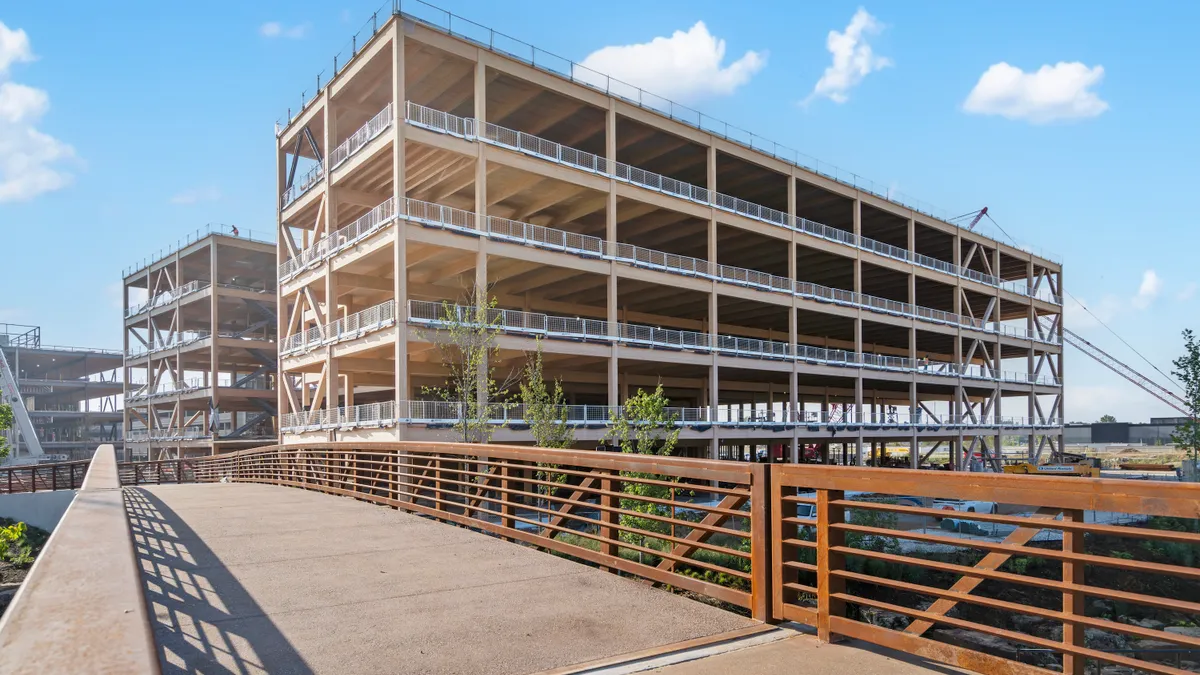The following is a guest post from Wayne Rivers, co-founder and president of The Family Business Institute.
Succession planning has always been a hot topic among contractors of a certain age, and that’s not likely to change. What has most definitely changed, however, is that today’s discussions are broader and include many more alternatives. There will always be family-owned construction companies, but, for today’s contractor, succession decisions are much more merit-based than family-driven.
Thanks to societal, macro-economic and leadership changes the succession pendulum has dramatically swung in the past few years. Here are 10 drivers that have shaped 21st century succession planning.
Mobility. Whereas it was common a couple of generations ago to be born, grow up, live, work and die in the same general area, that's much less prevalent than it once was. Young people are much more mobile and willing to take educational and vocational opportunities outside of their hometowns.
Education. Most successful contractors believe in quality education, and they invest, sometimes quite heavily, in their children’s educations. In some cases, the children may even become “too educated" to become contractors. For example, a son or daughter who attends medical school may be unlikely to join the construction industry.
Postponed marriages. People are marrying later and having children later in life which, in turn, means their children may be quite young when the parents inevitably start thinking about their business exits around age 55 or 60. At age 60, for example, they simply can't afford to wait 10 additional years to assess whether or not their kids are attracted to construction and possess the characteristics that would make them successful business operators.
Work ethic. Whether or not it's universally true, a perception certainly exists in the construction field that appetites for hard work have decreased compared to workers a generation ago. Many senior-generation contractors who live to work find that their kids work to live, and the respective definitions of what constitutes a healthy work-life balance often are not remotely in concert.
Job opportunities. While returning to the family business may have been the most attractive or lucrative job opportunity available a generation ago, today’s graduates have job choices galore. For them, working in the family business may seem like a humdrum, comparatively unexciting alternative.
Business complexity. The construction industry has never been more complex. For previous generations, a son taking over dad’s business wasn’t so different from dad taking over his own father’s company years prior; the pace of change was less aggressive. Today, any construction business of any size has an incredible number of moving parts, not the least of which is technology.
"Construction business owners are quite discerning today about their prospective successors. They realize that traditional stereotypes about construction executives — gender, age, education and experience, for example — are no longer determinative of future success."

Wayne Rivers
Co-founder and president, The Family Business Institute
The war for talent. Talented employees have greater leverage now than they ever have had. In fact, it's not uncommon for talented non-family employees to ask for a "piece of the action” in the form of company ownership. Even if they're not pressing for ownership, they often demand transparency into the succession plans of the leadership generation. They want to know that the careers they have carved out will be preserved through robust ownership, management and strategic succession planning.
Discernment. Construction business owners are quite discerning today about their prospective successors. They realize that traditional stereotypes about construction executives — gender, age, education and experience, for example — are no longer determinative of future success. Furthermore, while many contractors would love to pass the business to their children, they also realize that some of their non-family employees simply have much more leadership and business potential. They lean more toward meritocracy than nepotism when choosing successor candidates. Another significant change is that today's leaders think about retiring while enjoying good health and work-life balance; their predecessors were often predisposed to a “die with your boots on" mentality which allowed them to postpone succession planning or ignore it altogether.
Business success. Many of today’s contractors are more successful than their parents were. This means that their children had more comfortable and secure upbringings than they did, and potential family successors may not be as hungry to lead and build an organization as they were. In addition, it may be quite daunting for a young son or daughter to attempt to follow in the footsteps of a mom and dad who have been extremely successful. There are too many family business stories of successor generations following entrepreneurial giants and failing. Young people may be deciding that they don't want their careers to be ones of constantly trying to measure up to mom and dad.
Employee stewardship. Successful construction executives today exhibit a strong stewardship attitude toward their business families. They love and want to reward the employees that have helped them be successful over time, and they are much more interested in allowing long-term employees to have a stake in ownership and leadership than was the case a generation ago.
When we started working with construction companies 30 years ago, business succession generally meant only one thing: The company would pass from a senior family member to his children. There has been a sea change in contractor attitudes toward succession planning, however, and most plans now favor non-family, key employee ownership as opposed to passing along family lines.




















